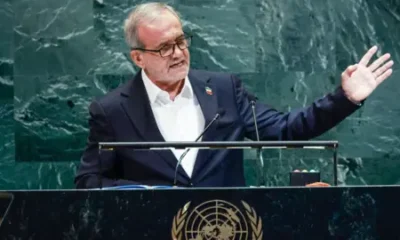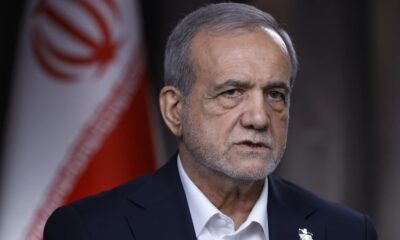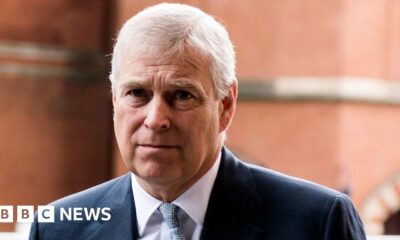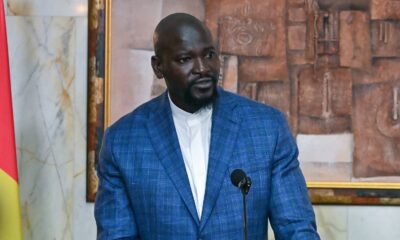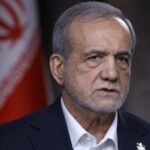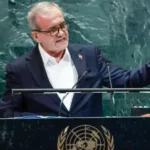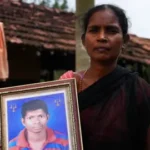Business
How India’s war against Maoists is affecting its people
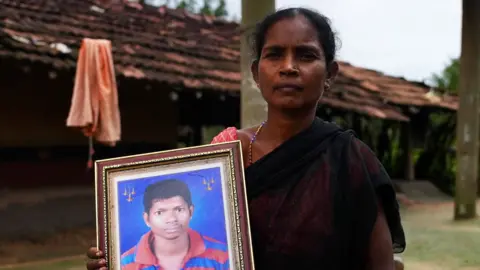
Read full article on post.
Vishnukant Tiwari, Jugal Purohit and Antariksh JainBBC Hindi
Locals and tribal communities in central and eastern India have long found themselves caught in a crossfire between Maoist rebels and government security forces.
The Maoist insurgency – an armed movement seeking to establish a communist state – has persisted for nearly six decades and claimed thousands of lives.
Left-Wing Extremism (LWE), as it is officially called, began in 1967 as an armed peasant revolt in West Bengal and, by the mid-2000s, had spread to nearly a third of India’s districts. In 2009, Prime Minister Manmohan Singh called it the country’s “greatest internal threat”.
Last year, the Indian government set a March 2026 deadline to end the insurgency and launched intensified security operations under its “ruthless” containment strategy.
Between January 2024 and September this year, security forces killed more than 600 alleged rebels, according to the South Asia Terrorism Portal (SATP). This includes several senior members of the banned Communist Party of India (Maoist).
To tighten control over Maoist-dominated regions, the government also set up dozens of new security camps, particularly in Chhattisgarh, a central Indian state where tribal communities make up around 30% of the population and live deep within its dense forests.
Amid the crackdown, the rebels announced earlier this year that they were open to conditional peace talks with the government.
Officials, however, have ruled out negotiations unless the Maoists lay down their arms. They say that the government’s actions are not just necessary but also seem to be working. According to the federal home ministry’s annual report, security forces carried out nearly twice as many anti-Maoist operations in early 2024 compared with the same period in 2023 and the number of rebels killed was five times higher.
But rights activists worry about the human cost of these operations.
Maoist-affected regions remain among India’s poorest and most underdeveloped, despite rich natural resources, with ordinary citizens – especially tribal communities- bearing the heaviest burden.
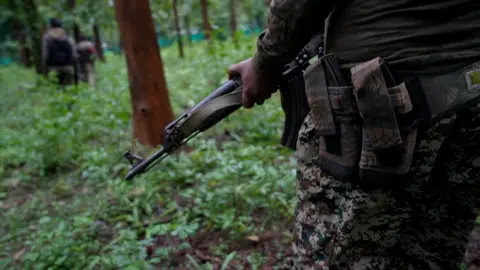 Seraj Ali/BBC
Seraj Ali/BBCIn Chhattisgarh’s Bastar district, Pekaram Mettami mourns his son Suresh, in his 20s, killed by Maoist rebels in January over alleged police links – a claim denied by his family, police, and locals.
Suresh, who studied up to 10th grade, was the village’s most educated resident and a strong advocate for local schools and hospitals.
“He only wanted better facilities for his people and that cost him his life,” his father said.
About 100 miles away in Bijapur, Arjun Potam mourns his brother Lachchu, killed in a February anti-insurgency operation. Police said eight Maoists were killed, but Mr Potam insists all were innocent.
“Those who died didn’t have any weapons on them. Some even tried to surrender, but the police did not listen,” he says.
“He [Lachchu] had ties with both police and the Maoists. But he never took up arms,” he added.
Sundarraj P, a senior police official in Bastar, denied the allegations and said that “there has been no case of wrongdoing [against civilians] in recent times”.
But locals allege that such security operations – where the line between armed rebels and ordinary civilians is often blurred – are common.
In 2021, security forces shot dead five protesters in Sukma district opposing a new security camp, locals claim. Police said they were attacked by a mob incited by rebels, but villagers insist the protesters only blocked roads to prevent officials from reaching the site
“They declared my husband a Maoist after he was hit by a bullet,” said Ursa Nande, whose husband Ursa Bheema was among those killed.
An Indian Express report said an inquiry was ordered, but the district’s police chief and top civil official did not respond to BBC Hindi on its outcome.
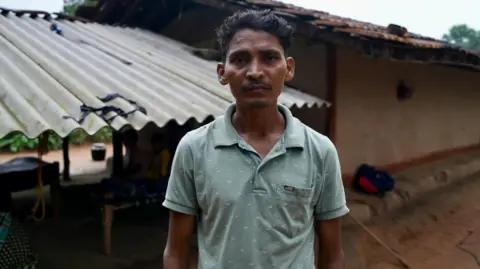 Seraj Ali/BBC
Seraj Ali/BBCThe Indian government says its “zero-tolerance” policy against Maoism has succeeded, with the District Reserve Guard (DRG) – comprising locals and surrendered Maoists – helping security forces track rebel tactics and hideouts, senior officials told BBC Hindi.
Rights activists oppose including locals in these units, likening them to the now-dissolved Special Police Officers (SPO) force, which also relied on local recruits.
In 2011, the Supreme Court ordered Chhattisgarh to disband the force, calling it unconstitutional and warning that tribal recruits were undertrained and used as “cannon fodder” against rebels.
While this halted tribal recruitment for the SPOs, it didn’t apply to the DRG, which continues to enlist local youth, including former rebels.
Gyanesh, 28, (name changed) is one of them. He surrendered as a rebel last year and joined the DRG within weeks, taking part in counter-insurgency operations despite saying he “has not received any training yet”.
Police deny this, saying all personnel receive proper training before operations, while activists urge the government to prevent ex-rebels from returning to arms.
Author and academic Nandini Sundar, who had petitioned the court against the use of SPOs, says that “a dignified state response” to surrendered rebels would be to say, “come and live a normal life as a civilian”.
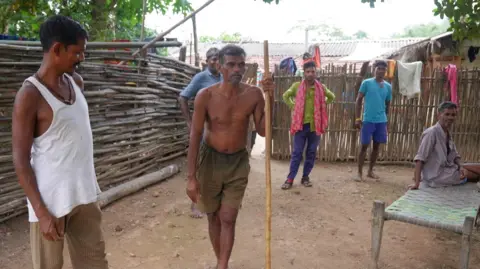 Antariksh Jain Jain/BBC
Antariksh Jain Jain/BBCThe government has also launched incentives to gain local support, including a 10 million rupee ($113,000; £84,000) development fund for villages that secure full Maoist surrenders, along with promises of new schools, roads, and mobile towers in insurgent-affected areas.
But locals remain opposed to these projects, fearing that they will lose their land, be displaced, and see the forests they depend on harmed. Akash Korsa, 26, a tribal resident of Bastar, says these fears help sustain some local support for the Maoists.
Experts doubt the government can fully eliminate Maoism by March. Former Chhattisgarh police chief RK Vij says small rebel groups still exist even in districts officially declared Maoist-free.
For now, caught between the two narratives, locals continue to pay the price for the decades-long struggle.
“We never got any help from the government, even in our darkest moments,” said Ursa Nande. “And now the Maoists too have stopped helping us,”
Follow BBC News India on Instagram, YouTube, X and Facebook.
Business
Reeves pushes for EU youth migration scheme ahead of Budget
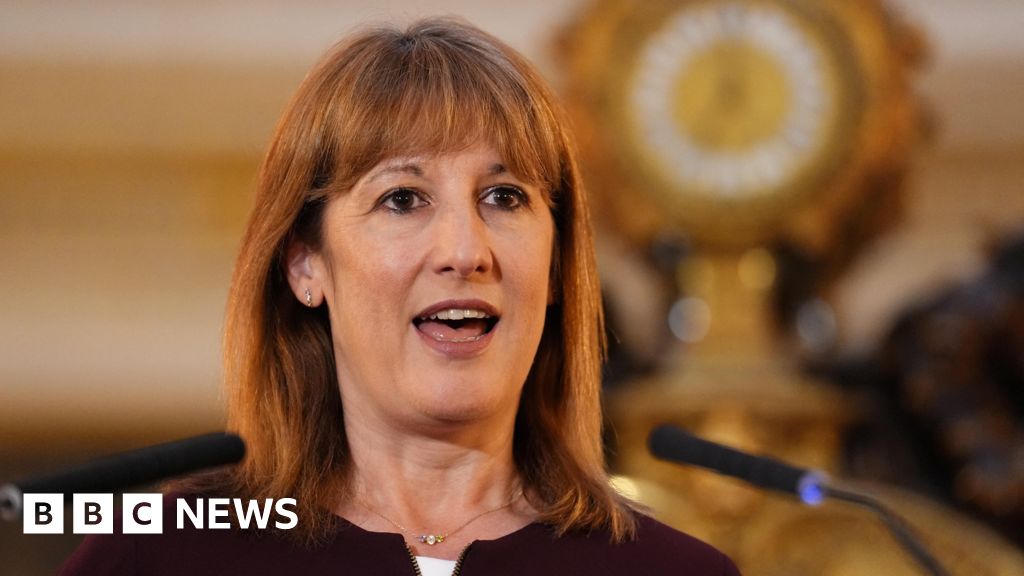
Read full article on post.
Rachel Reeves has pushed for an “ambitious” youth migration deal with the EU in a bid to improve the outlook of the public finances ahead of the autumn Budget.
The Chancellor told the Times an exchange scheme for young workers would be “good for the economy, good for growth and good for business”.
The UK agreed to work towards a “youth experience visa” with the EU in May this year but the specifics of the scheme are still being negotiated.
Reeves also called for the Office of Budget Responsibility (OBR) to factor the potential economic impact of such a scheme into its forecasts ahead of the Budget, which she hopes will reduce the need for spending cuts or tax rises.
The proposal has previously been criticised by the Conservatives and Reform UK, who have said it amounts to a partial return to freedom of movement, which ended when the UK left the EU.
Speaking to the Times ahead of the Labour Party’s conference in Liverpool this week, Reeves said the youth visas would be time-limited, with those aged 18 to 30 allowed to stay for two years and given no right to remain.
The chancellor declined to specify how many visas could be issued annually under the scheme.
The UK already has similar schemes with 11 countries including Australia, New Zealand and Japan, with people able to stay for up to three years depending on where they apply from.
Under those agreements, the UK issued just over 24,000 youth mobility visas in 2024.
The OBR has previously scored UK growth down by 4% due to the original Brexit deal.
The chancellor believes that has set a precedent and that the OBR should include the projected economic upsides of a youth mobility scheme into its upcoming forecast.
Referencing the agreement between London and Brussels earlier this year, Reeves told the Times: “As a result of that reset in May, we think the economy will be stronger. We also want the OBR to score that.”
The OBR will send its first economic forecast to the treasury on Friday, which will include the gap the chancellor will need to make up in her 26 November Budget.
Much is depending on the OBR’s expected downgrade to the underlying long-term performance of the economy, or productivity. The gap could be £20 or £30 billion per year.
In response, the Chancellor has stressed a series of measures aimed to help the economy grow faster, including further trade deals.
If accepted by the independent forecasters, the inclusion of the proposed EU youth mobility scheme into its calculations could theoretically limit the extent of any new tax rises.
The OBR has scored policy moves on house building and childcare as helpful to the economy in recent years.
Speculation has been rife that the chancellor will be forced to raise taxes or cut spending in order to fill the fiscal hole, despite Labour’s election promise not to increase income tax, National Insurance or VAT for working people.
Business
UN sanctions against Iran to resume over banned nuclear activity
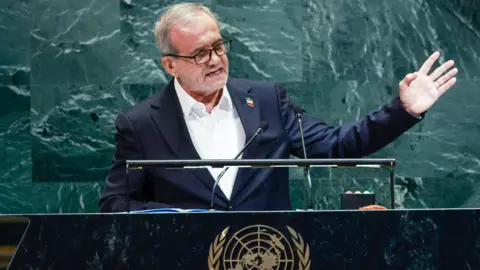
Read full article on post.
Lyse DoucetChief international correspondent, New York and
Raffi Berg
The United Nations’ sweeping economic and military sanctions look set to be reimposed on Iran a decade after they were lifted in a landmark international deal over its nuclear programme.
It comes after the UK, France and Germany wrote to the UN Security Council last month, accusing Iran of failing to fulfil its commitments. That triggered a mechanism giving Iran 30 days to find a diplomatic solution to avert renewed sanctions.
Iran’s President Masoud Pezeshkian condemned the re-imposition of international sanctions as “unfair, unjust, and illegal”.
A last-minute resolution, led by China and Russia, to delay the move by six months only received four votes in the 15-member council.
Iran stepped up banned nuclear activity after the US quit the deal in 2016. Donald Trump pulled the US out in his first term as US president, criticising the deal – the Joint Comprehensive Plan of Action (JCPOA) – negotiated under his predecessor Barack Obama as flawed.
Iran barred IAEA inspectors from accessing its nuclear facilities after Israel and the US bombed several of its nuclear sites, as well as military bases, in June after negotiations held indirectly between the US and Iran to try to reach a new nuclear deal became deadlocked.
President Pezeshkian told the UN this week that his country would never seek to build a nuclear bomb.
Speaking to a group of journalists, Pezeshkian accused foreign powers of seeking a superficial pretext to set the region ablaze, insisting that, despite previous threats, Iran would not quit the Non-Proliferation Treaty.
But he added that Tehran would need reassurances that its nuclear facilities would not be attacked by Israel in order to normalise its nuclear enrichment programme.
Pezeshkian kept pointing to the negotiations which had taken place before Israel and the US bombed Iran’s nuclear sites in June and accused the Americans of not taking the talks seriously. The sanctions add yet more strain to an already fraught situation.
The sanctions would include:
- an arms embargo
- a ban on uranium enrichment
- a ban on activity connected to ballistic missiles capable of delivering nuclear weapons
- a freeze of assets and a travel ban on Iranian figures and entities
- authorisation of countries to inspect Iran Air and Iran Shipping Lines cargo
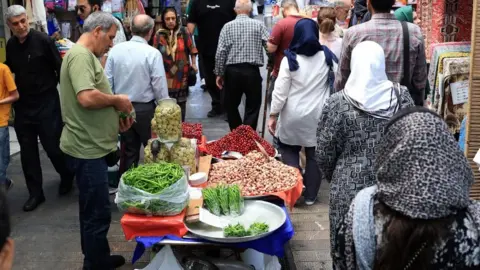 Reuters
ReutersUnless a solution is found, UN sanctions would come into force first, followed by EU sanctions next week.
European foreign ministers had tried to avert the council’s step by urging Iran to resume negotiations with the US; to cooperate with the UN’s nuclear watchdog the IAEA, and to account for its highly enriched uranium stockpile.
Speaking at the UN on Friday, Iranian Foreign Minister Abbas Aragchi said: “The United States has betrayed diplomacy, but it is the E3 (Britain, Germany and France) which have buried it.”
“The negotiation with the United States is in fact a pure dead end,” Aragchi added.
Iran is legally obliged under the nuclear treaty to allow inspections.
It has been in talks this week with the IAEA to find a way forward, but has warned that a return of sanctions will put that in jeopardy.
On Friday, the IAEA confirmed that inspections of Iranian nuclear sites had resumed this week after a hiatius following Washington and Israel’s strikes.
Western powers and the IAEA say they are not convinced that Iran’s nuclear programme has purely peaceful purposes.
Iran strongly insists it is not seeking nuclear weapons, and that its programme is solely a civilian one.
Russia on Friday signed a $25bn deal with Iran to build four nuclear power reactors in southern Iran, Iranian state-run IRNA news agency reported.
Business
Elon Musk and Prince Andrew named in new Epstein files
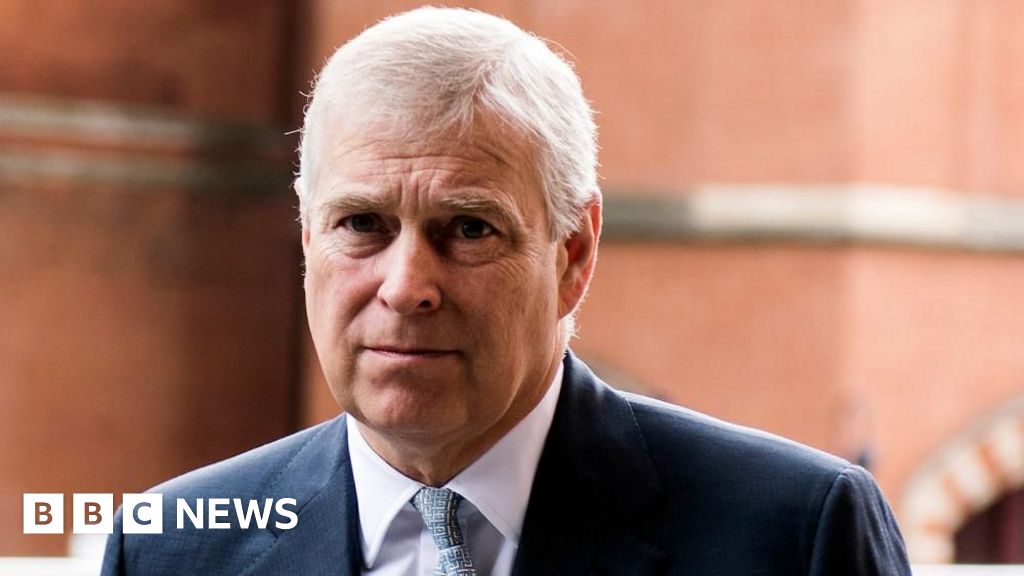
This post was originally published on this site.
Billionaire Elon Musk and Prince Andrew are named in new files released by Congressional Democrats that relate to the late convicted sex offender and financier Jeffrey Epstein.
The files turned over to the House Oversight Committee by the Jeffrey Epstein Estate appear to show that Musk had been invited to Epstein’s island in December 2014.
Separately a manifest for a flight from New Jersey to Florida in May 2000 names Prince Andrew among the passengers.
Musk and Prince Andrew have been approached for comment.
Prince Andrew has previously strenuously denied any wrongdoing. Musk has previously been quoted as saying that Epstein had invited him to the island but he had declined.
The partial records are from the third batch of documents produced by the Jeffrey Epstein Estate. Democrats on the House Oversight Committee say they include phone message logs, copies of flight logs and manifests for aircrafts, copies of financial ledgers and Epstein’s daily schedule.
In addition to Musk and Prince Andrew, the files released publicly also contain the names of other prominent figures including internet entrepreneur Peter Thiel and Steve Bannon, a former advisor to Donald Trump
One line in the records dated 6 December 2014 reads: “Reminder: Elon Musk to island Dec. 6 (is this still happening?)”
A flight manifest records that Prince Andrew was on a flight with Epstein and his associate Ghislaine Maxwell from Teterboro, New Jersey, to West Palm Beach, Florida, on 12 May 2000. Maxwell was convicted in 2021 of conspiring with Epstein to traffic girls for sex.
One heavily redacted ledger records two references of payments for massages for an ‘Andrew’ in February and May 2000. While Palace records, photographs and press reports from the time indicate Prince Andrew had travelled to the US around the time of the dates recorded in the newly released document, it is not clear who the ‘Andrew’ referred to in the ledger is.
On 11 May 2000, Buckingham Palace said on its website that Prince Andrew had flown to New York to attend a reception in New York for the National Society for the Prevention of Cruelty to Children. Andrew returned to the UK on 15 May, a later entry said.
In the files, there is also an entry referring to a planned lunch with Peter Thiel in November 2017.
There is also an entry referring to a planned breakfast with Steve Bannon 17 February 2019.
The files also mention tentative plans for a breakfast party with Microsoft founder Bill Gates in December 2014. In 2022 Gates told the BBC that meeting Jeffrey Epstein had been a “mistake”.
It is not suggested that those mentioned in the files were aware of the alleged criminal activity for which Epstein was later arrested.
Epstein died by suicide in a New York jail cell in August 2019 while awaiting trial on sex trafficking charges.
In 2008, he reached a plea deal with prosecutors after the parents of a 14-year-old girl told police in Florida that Epstein had molested their daughter at his Palm Beach home.
He was arrested again in July 2019 on sex trafficking charges.
Sara Guerrero, a spokesperson for the Democrats on the committee, urged Attorney General Pam Bondi to release more files related to Epstein.
“It should be clear to every American that Jeffrey Epstein was friends with some of the most powerful and wealthiest men in the world. Every new document produced provides new information as we work to bring justice for the survivors and victims,” she said.
Republicans on the committee accused the Democrats of “putting politics over victims” and said they would release the full set of documents soon.
-
Politics4 days ago
European Parliament snubs Orbán with vote to shield Italian MEP from Hungarian arrest
-
Culture3 weeks ago
Life, loss, fame & family – the IFI Documentary Festival in focus
-
Culture2 months ago
Fatal, flashy and indecent – the movies of Adrian Lyne revisited
-
Environment1 week ago
Key oceans treaty crosses threshold to come into force
-
Health5 days ago
EU renews support for WHO’s Universal Health Coverage Partnership
-
Culture1 week ago
Farewell, Sundance – how Robert Redford changed cinema forever
-
Culture4 days ago
Twilight at 20: the many afterlives of Stephenie Meyer’s vampires
-
Culture4 weeks ago
What is KPop Demon Hunters, and why is everyone talking about it?





